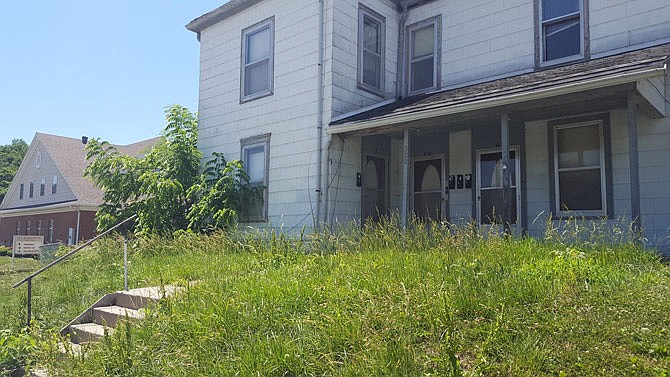Jefferson City code enforcement officials issued a record number of violations in May.
The city issued 525 code violations in May, according to city code enforcement records, with tall weeds and accumulation of brush accounting for nearly 70 percent. The previous year, in May 2017, the city issued 310 code violations.
Code enforcement officials have averaged about 350 code violations a month since Nov. 1, 2017, seeing two 500-plus violation spikes in May and January, Jefferson City Housing and Property Inspector Dave Helmick said.
This trend is mirrored in the uptick of code violations so far this fiscal year. Between Nov. 1, 2017, and May 31, 2018, the city gave out 2,502 code violations - 758 more than during the same period the previous year.
While the weather can correlate with upticks in violations, city code enforcement officials also are being more proactive when giving out violations, Helmick said.
"When they go out to a citizen complaint to investigate something, they look at the surrounding properties to make sure they are all in compliance," he said. "They're not solely visioned on the one."
When code enforcement officials spot a violation, they give the property owner 10 days to correct it. If it's not corrected, they send a second notice and try to contact the property owner to explain why the issue was not fixed. If it is still not corrected or the property owner can't be reached, the city can summon the owner to Municipal Court or abate the property.
Of the 2,502 violations this fiscal year, 90 percent of cases were closed, according to code enforcement records. About 88 percent were closed during the same time last year.
About 97 percent of code violations were solved through voluntary resident compliance between Nov. 1, 2017, and May 31 before abatements, summons or hearings. Most cities average about 80-85 percent compliance, Helmick said.
"A lot of cities, they immediately go to citations, they immediately go to abatements. They have different programs where they don't have to give them additional notices, things like that," Helmick said, noting Jefferson City's code enforcement officials mail multiple notices and post notices on properties.
Sonny Sanders, Jefferson City Department of Planning and Protective Services director, said they will normally extend the time to correct a violation if a property owner communicates with the city.
While the majority of code violations were solved through voluntary compliance before abatements, summons or hearings this fiscal year, the city abated 49 properties - nearly 2 percent of violations - according to code enforcement records.
Once the city debuts its new code enforcement, possibly in August, that may streamline the code enforcement process and help officials be more proactive. The Jefferson City Council approved the new software earlier this year, allowing code enforcement officials to conduct most of their work in the field, property owners to provide updated information, and residents to report code violations through a citizens' web portal.
"It will allow us to get into areas we really don't get into as often," Helmick said. "Right now, a lot of the stuff we focus on are citizen complaints and then we look at the areas around there. By using the software, we can see, 'OK, we've been in this area, and we need to get into this area some more. We need to go and do a complete walk-through of this neighborhood.' It will allow us to plot and see where we've been and plot those things on a map."
Helmick and Sanders anticipate a continued increase in code violations for the next couple of years.
"There will be a spike initially because we will be getting into areas that we don't get into very often and we're going to be able to address multiple violations on multiple streets without having to come back to City Hall, which takes a lot of time right now, so the numbers will go up strictly from that," Helmick said. "Through education and being able to communicate more effectively, things like that, our goal within the next few years is to start a gradual decline on the number of violations."

